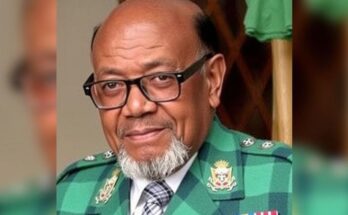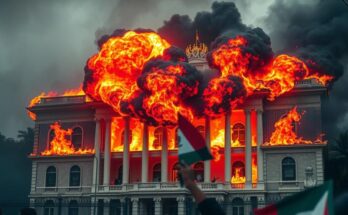Mozambique’s upcoming elections may bring a youthful president to power for the first time since independence. Citizens will vote to choose their new leader, amidst substantial issues like ongoing armed conflict, unemployment, and systemic corruption. The main candidates include Daniel Chapo from Frelimo, Ossufo Momade from Renamo, Venancio Mondlane as an independent, and Lutero Simango from MDM, each vying to address pressing national concerns. The election results could significantly shape Mozambique’s future stability and governance.
Mozambique is poised for significant electoral change as its citizens prepare to vote, potentially electing a president born after the nation’s independence from Portuguese colonial rule in 1975. With approximately 17 million of the 32 million citizens eligible to participate, these elections will not only decide the presidency but also 250 parliamentary seats and several provincial officials across the country. President Filipe Nyusi, aged 65 and representing the Mozambique Liberation Front (Frelimo), will adapt after serving eight years in office, marking a decisive moment in Frelimo’s long-standing dominance since the independence movement. Nyusi’s tenure is marred by the tuna bond corruption scandal, implicating Frelimo officials and resulting in significant financial repercussions for Mozambique, including a staggering $2 billion in hidden debts. Amid widespread dissatisfaction among youth regarding unemployment and security amidst ongoing armed conflicts, the leading candidates reflect a mix of established political figures and fresh faces hopeful for change. The frontrunner, Daniel Chapo, 47, is noted for his proximity to Frelimo’s power and an agenda promising peace in Cabo Delgado province, despite previous sentiments linking the party to corruption. Opponent Ossufo Momade, 63, leader of the opposition Mozambican National Resistance (Renamo), has significant historical ties to Mozambique’s civil war and has previously claimed election fraud against Frelimo. Venancio Mondlane, 50, appeals to younger voters and promises substantial reforms, running as an independent with broad support from various political coalitions. Lutero Simango, at 64, leads the Democratic Movement of Mozambique (MDM) and bases his campaign on job creation through local resource processing. Core electoral issues include the ongoing armed conflict fueled by ISIL-affiliated groups in Cabo Delgado, the severe job shortages among the youth population exacerbated by recent economic crises, and the climatic vulnerabilities impacting food security. With Mozambique’s history of electoral integrity questioned, the public remains cautious about potential electoral fraud. Voting culminates on Wednesday, with results anticipated to begin rolling out immediately post-ballot and official counts reported within 15 days, amidst a tense atmosphere marked by hopes for change and fears of unrest.
The elections in Mozambique represent a pivotal moment in the nation’s political landscape, particularly as they might introduce a younger leadership after decades rooted in the legacy of the liberation struggle against colonial rule. The country has faced systemic challenges, including poverty, unemployment, and corruption, which compound existing issues such as the ongoing armed conflict in the northern Cabo Delgado province. These factors contribute to the heightened anticipation surrounding the electoral process. The significant youth demographic in Mozambique is increasingly vocal about their desire for political change, which the candidates must address to secure their votes.
In summary, Mozambique’s upcoming elections are a confrontation of political ideals where change is sought by a disillusioned electorate. The substantial candidacies from both long-standing political figures and newer challengers reflect a desire for renewed leadership and a rejection of past corruption. The results will not only indicate the future political direction of Mozambique but also reflect the populace’s stance on critical issues such as security, economy, and governance.
Original Source: www.aljazeera.com




